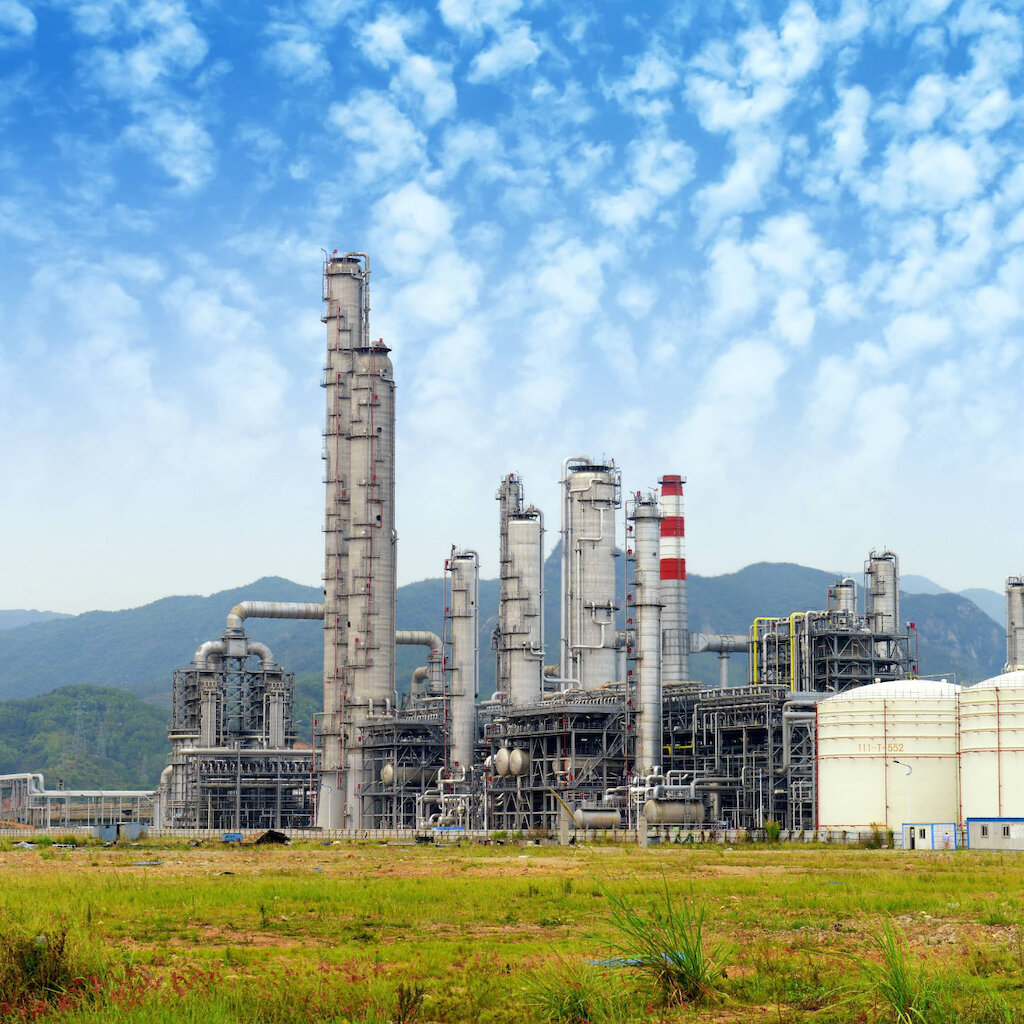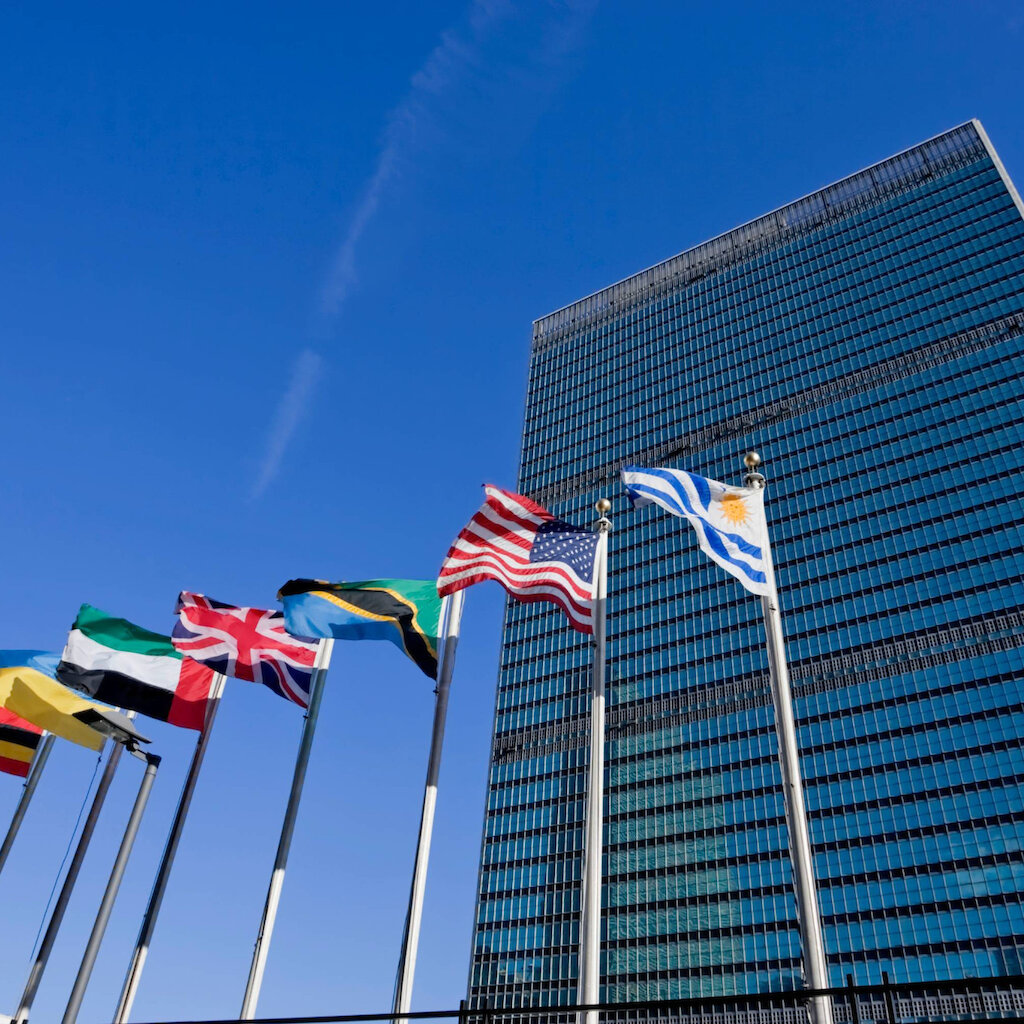Ipieca works with its members to provide a forum to share and develop industry good practice on downstream environmental and social issues and the promotion of technological and management solutions to reduce greenhouse gases (GHG) over the life cycle of fuels and products from feedstock acquisition to their end use.
Phasing out leaded gasoline
Ipieca is a founding member of the United Nations Environment Programme's (UNEP) Partnership for Clean Fuels and Vehicles (PCFV), which focuses on air quality improvements through improved vehicle emissions standards and associated fuels.
Working in partnership with UNEP PCFV, Ipieca assisted the oil and gas industry in implementing downstream strategies and resources for phasing out leaded gasoline, including developing an extensive guide to the issue, Getting the lead out: downstream strategies and resources for phasing out leaded gasoline.
Working with over 70 organisations for almost two decades, this powerful collaboration eliminated leaded petrol use from 82 countries, with the final phase-out in the last remaining country occurring in mid-2021 marking the end of the use of leaded petrol worldwide.
Lower-sulphur fuels in road transport
Following the global elimination of leaded petrol in 2021, the PCFV’s focus is now on the reduction of sulphur in petrol and diesel fuel in the Global South through the adoption of the Euro 4 vehicle emissions standards.
Unlike lead, sulphur is naturally present in crude oil. To create lower-sulphur fuels, the sulphur must be removed via desulphurization processes at the refineries, which often pose financial and logistical challenges, especially in developing countries. To assist countries in addressing these challenges, Ipieca developed the guidance document Lower-sulphur fuels, road transport strategies and air quality improvements, which considers the issues linked to the reduction of sulphur levels in transportation fuels, and discusses appropriate strategies and options to address these issues.
Ipieca has been asked by the PCFV to actively support its Euro 4 campaign, coordinating the downstream industry’s contribution to the PCFV’s Euro 4 campaign objectives.
Marine fuels
Air pollution from ships causes a cumulative effect that contributes to the overall air quality. Better fuels can reduce emissions and improve air quality.
The International Maritime Organization (IMO) regulates shipping on behalf of the United Nations.
Ipieca helped the IMO to assess the science surrounding these changes to the marine fuels regime. In 2019, Ipieca, in collaboration with a number of shipping, refining, fuel supply and standards organisations, published a Joint Industry Guidance on the supply and use of 0.50%-sulphur marine fuel, presenting safety and operational issues relating to the supply and use of 0.50%-sulphur fuels, an overview of fuel quality principles, and the controls to ensure that safety issues are well managed. This guidance was featured in the UNEP BIMG beacon projects 2024 report Shining examples of scalable business projects that are helping to tackle climate change, nature and biodiversity loss, pollution, and waste all around the world.
In 2023, the IMO adopted its revised strategy on reduction of GHG emissions from ships which includes an enhanced ambition to reach net-zero GHG emissions close to 2050, and new guidelines on life cycle GHG intensity of marine fuels.
Ipieca participated in discussions around these adoptions, providing industry technical feedback during working sessions. Ipieca will continue to support the IMO’s work to lower GHG emissions of the maritime industry with a technology neutral life cycle methodology, providing technical expertise and industry guidance.
Ipieca also contributes to the IMO Future Fuels and Technology project providing updates on lower-emissions fuels around the world.
Aviation fuels
In the aviation sector, deep GHG emissions reduction will require alternative fuels, with the most promising being sustainable aviation fuels such as biomass-derived jet fuels in the near-term, and synthetic fuels.
Ipieca members are supporting the development of sustainable and lower-carbon aviation fuels, producing these fuels in their own refineries and working in joint ventures to build new sustainable aviation fuel plants.
The UN specialised agency for aviation, the International Civil Aviation Organization (ICAO) recognises sustainable and lower-carbon aviation fuels as important GHG mitigation measures for the sector, and have included them as eligible fuels for the Carbon Offsetting Reduction Scheme for International Aviation (CORSIA) programme.
Ipieca has observer status with the ICAO and provides the ICAO with technical inputs to its Fuels Task Group meetings, with a focus on lower-carbon and sustainable aviation fuels including topics such as life cycle analysis, sustainability criteria, feedstocks, co-processing, carbon capture and storage (CCS), and renewable electricity.
Globally Harmonized System
The UN Globally Harmonized System (GHS) is a single worldwide system for classifying and communicating the hazardous properties of industrial and consumer substances and mixtures. The consistent classification and labelling of petroleum substances is essential to understanding their hazards, ensuring their correct handling and protecting nature and people from adverse impacts.
The oil and gas industry was the first sector to present guidance on its products to the UN Sub-Committee of Experts on GHS (UNSCEGHS) in 2010. The application of Globally Harmonized System (GHS) criteria to petroleum substances, was revised in 2019 to include new research on the hazards of petroleum-related substances and constituents.







